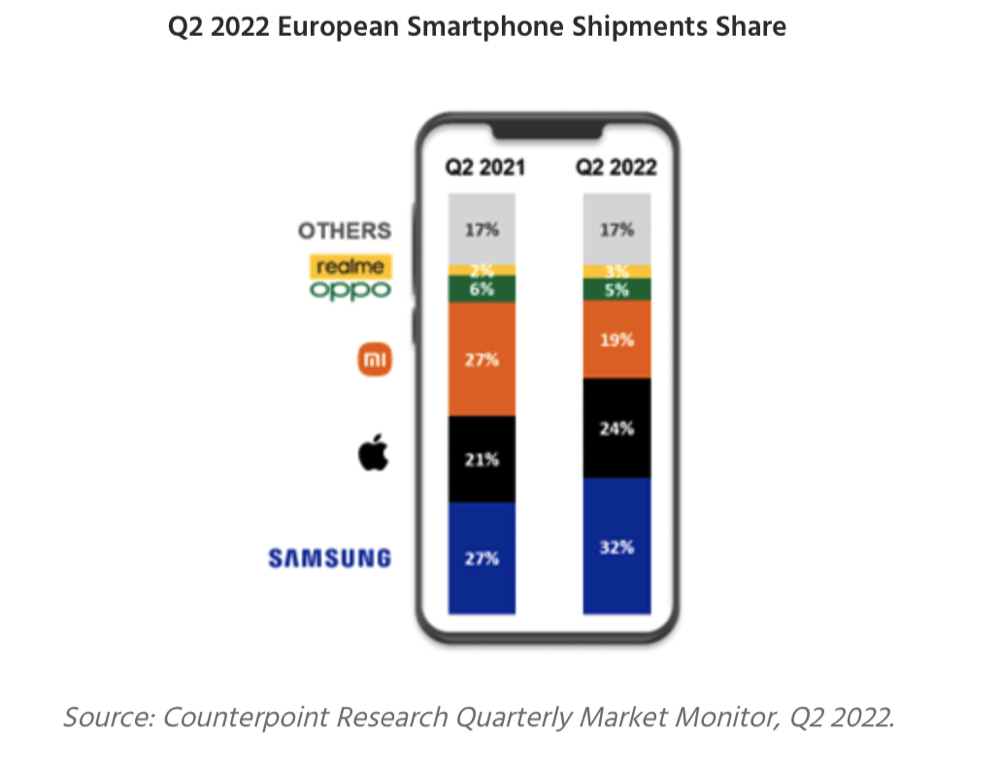Apple grows iPhone in Europe as smartphone industry slumps

Counterpoint claims the iPhone SE 2022 has really helped Apple in Europe.
Apple continues to kick against prevailing market conditions, growing market share in Europe even as the size of that market declined. The iPhone continued to grow both shipments and share in the second quarter of 2022, Counterpoint claims.
Shipments up, numbers up, sort of
Apple grew both shipments and market share year-on-year in Europe – largely due to the launch of the 5G-enabled iPhone SE – but it declined quarter-on-quarter as it withdrew frm Russia in reaction to the war in Ukraine.
Europe’s smartphone market declined 11% YoY and 13% QoQ to 40 million units in Q2 2022, the latest research data explains. This reflects the collapsing economy and geopolitical uncertainty as war continues in Europe – but Apple and Samsung both managed to grow shipments and market share YoY.
This reflects statements from Apple CEO, Tim Cook, who last week noted that the company has seen no significant impact on demand for iPhones as a result of the macroeconomic gloom. The company even went as far as to claim demand for its devices has been “Unceasing” – and Cook expects growth to accelerate in the September quarter.

Counterpoint shows Apple’s market share increase
“We saw new quarter records in both developed and emerging markets and the iPhone active installed base. reach a new all-time high across all geographies,” the company said. This was also reflected by news from across its supply chain.
But headwinds do exist
Counterpoint Research’s Associate Director, Jan Stryjak said, “It was a mixed bag of results in Q2 2022, and year-on-year comparisons mask complex market dynamics. Much has changed in Europe compared to last year and even last quarter, both from an industry and macro perspective.”
Samsung remained Europe’s number one vendor and grew both shipments and market share over the year, but this was mostly thanks to Q2 2021 being Samsung’s lowest European shipments total in over a decade due to factory shutdowns in Vietnam. All the same, Samsung’s European shipments dropped by almost a quarter on a quarterly basis due to its withdrawal from Russia.
Looking ahead, Stryjak observed: “The situation in Europe unfortunately remains bleak. Many countries in Europe are slipping closer to recession, and domestic political tensions in numerous countries beyond Russia and Ukraine are rising, for example in France, Germany, and the UK. We remain hopeful, though, that the bottom has been reached and the trajectory should turn upwards soon, but the recovery will likely be long and slow.”
Please follow me on Twitter, or join me in the AppleHolic’s bar & grill and Apple Discussions groups on MeWe.




